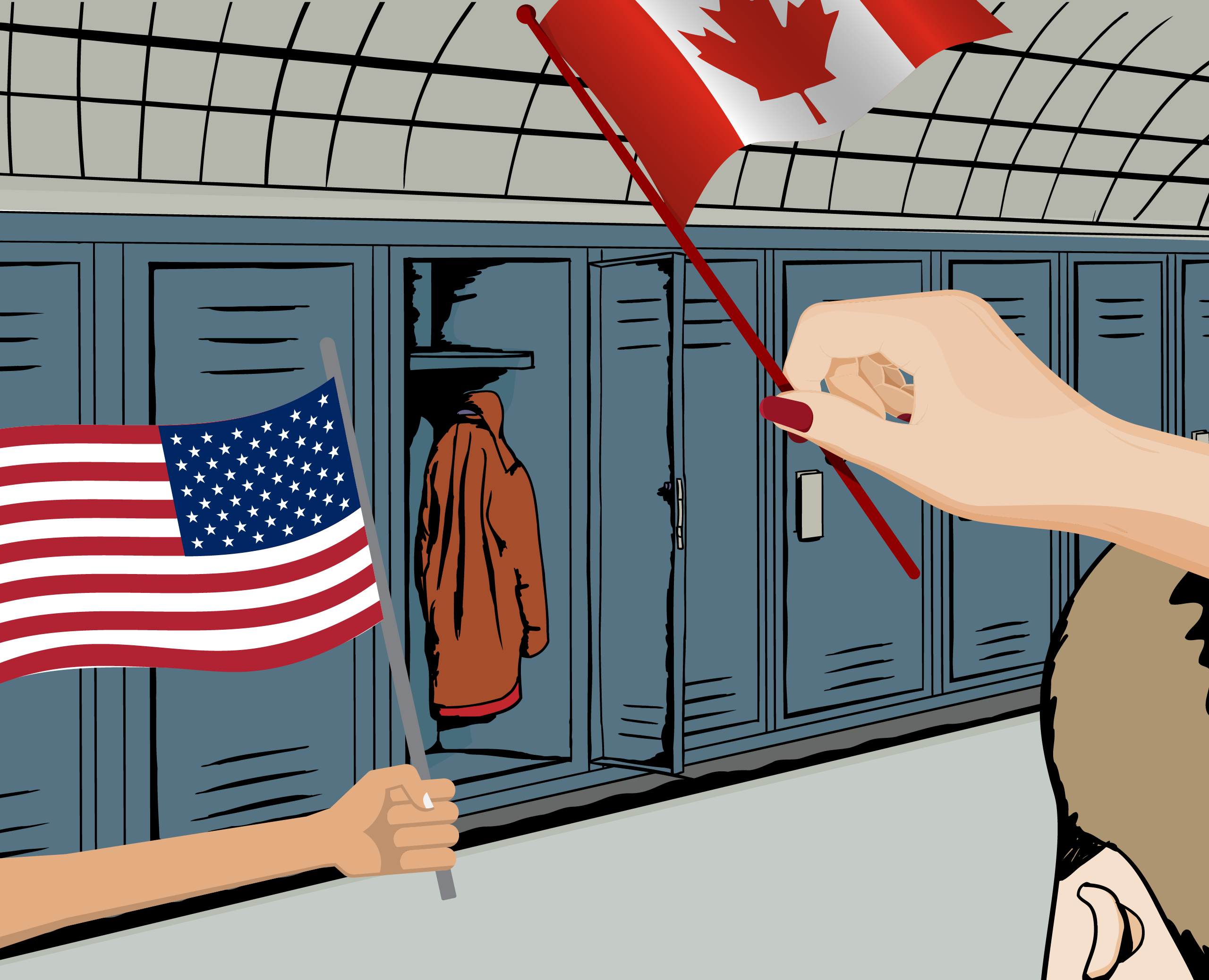– Erin MacLean
Here in Ohio, the end of the academic year is quickly approaching. Universities are already winding down, and in the next month or so the secondary, middle, and elementary schools will be closing for summer vacation.
Growing up in a border town, I always envied the American kids getting an early summer – even if I did laugh at them when they had to return in August. However, I never really appreciated the differences (or similarities) between our systems.
For the purposes of this column, I’m only going to touch on a few points because some of the differences are just too complex and muddied.
On Funding – Cash vs. Dignity?
As I understand it, the basic funding formula is the same – state / provincial funding mixed with monies from property taxes are used to fund public education.
Here’s the difference: in Ontario – come Election Day – you simply have to choose which school board you direct your taxes to; whereas in Ohio, the school boards must ask the voters to raise their own property taxes (a “levy”) so the schools can garner enough funding. And bear in mind, that’s not taking into account “bond issues,” where if school facilities need an upgrade, they need to ask for even more.
Frankly, I believe the state system is a cop-out because when the voters say “no,” there’s nowhere for the school board to turn, and the state can claim it’s done all it can; whereas if the Ontario Ministry of Education says “no,” the school board can always turn to the voters (media) to garner support for their issues. Simply put, the school boards in Ontario get to keep some of their dignity (and presumably do the begging behind-the-scenes), rather than be forced to go cap-in-hand to the public with no recourse other than continuing to limp along.
And in fact, this ritual begging process in Ohio shouldn’t even be happening because the funding formula was deemed unconstitutional multiple times by the Ohio Supreme Court! But since the state hasn’t been able to come up with something better, it too continues to limp along.
And it shouldn’t need saying, but the limping along of public institutions is also not served by the establishment of private schools.
A Private War on Public Education
Unlike in Ontario, the U.S. makes it easy – for those who can afford it – to opt out of the public education system. Anyone who thinks a two-tier system works is beyond delusional, it only works as a way to make public education fail. For the most part, private schools are merely used as an escape from a changing community for those who lack the willingness to make what they have, better.
Too harsh?
Public education is like health insurance, everyone needs to buy in for it to work properly. Come levy-voting time can we depend on the private school crowd to raise their own taxes if they’re already buying an education elsewhere? Some will, some won’t.
One can only hope enough people see the value in ensuring an educated populace.
The Future of Public Education?
Despite the problems facing public education, it carries on. And as it does there are ideas surfacing which seem to bode well for its future.
I had not heard of this in Ontario, however, here in Ohio, there are a few schools who are taking a different approach to education: a “mastery-based” approach.
In this kind of system, the object is for students to master a concept before moving on to the next lesson. This system acknowledges that everyone learns at different rates, and works to address that. Instead of forging ahead with lesson plans (where teachers have to get through a stated amount of material in a stated amount of time) the focus is on the student actually “getting” it. I personally think this is a brilliant approach – and say what you want about homeschooling, but I think this is an area in which they excel.
Now, I do foresee a few stumbling blocks along the way, but nothing insurmountable if everyone can agree that education isn’t just about giving kids a little bit of everything and hoping it sticks.
Education is about understanding.
And understanding our differences/similarities can only help to enrich the educational standards for those who come after us.








